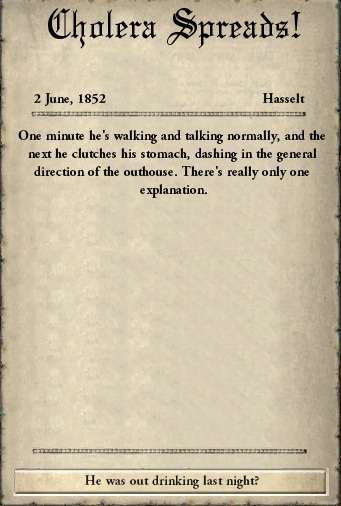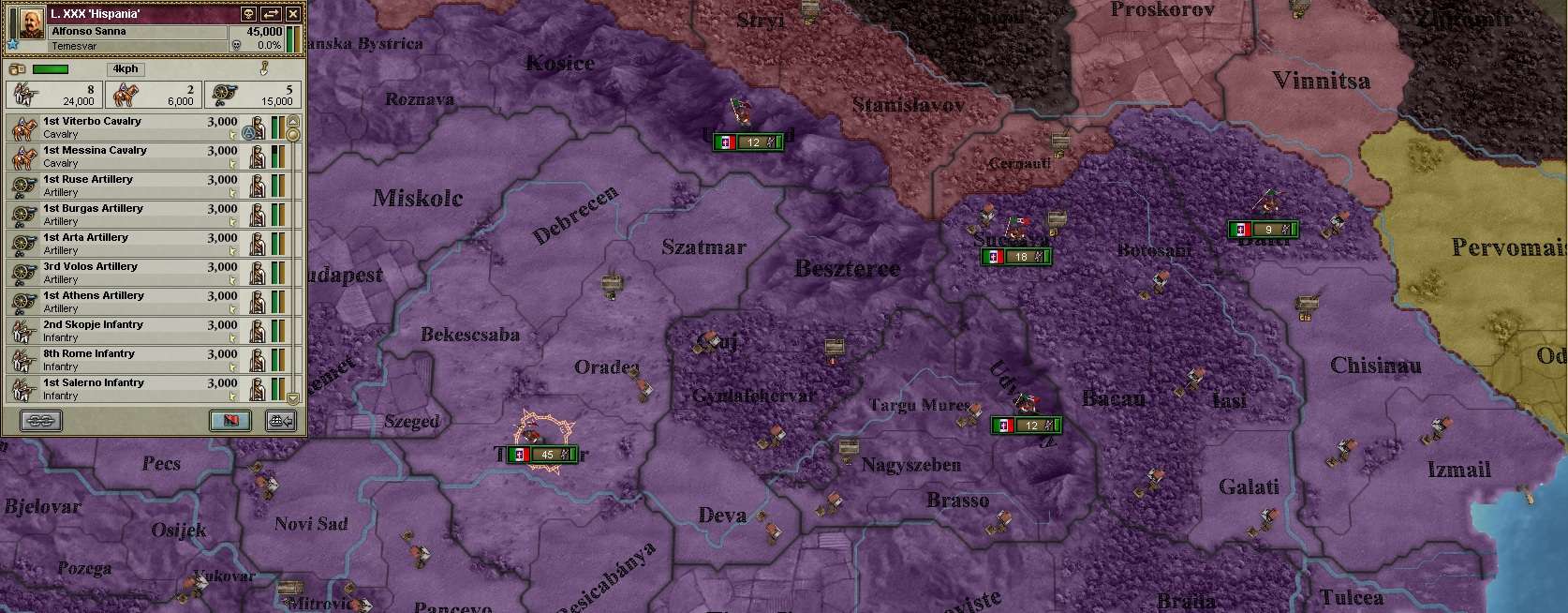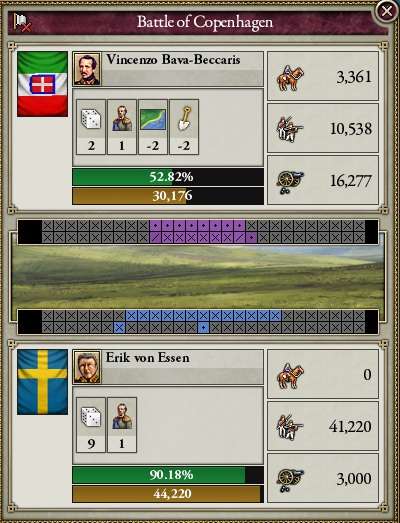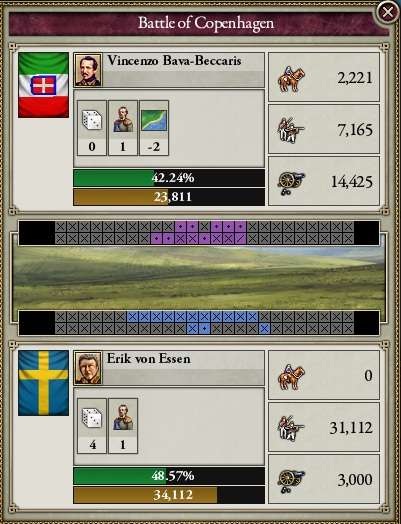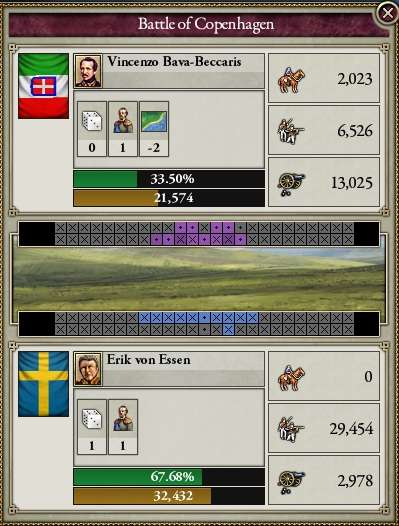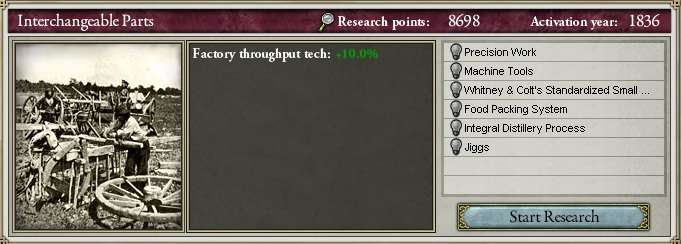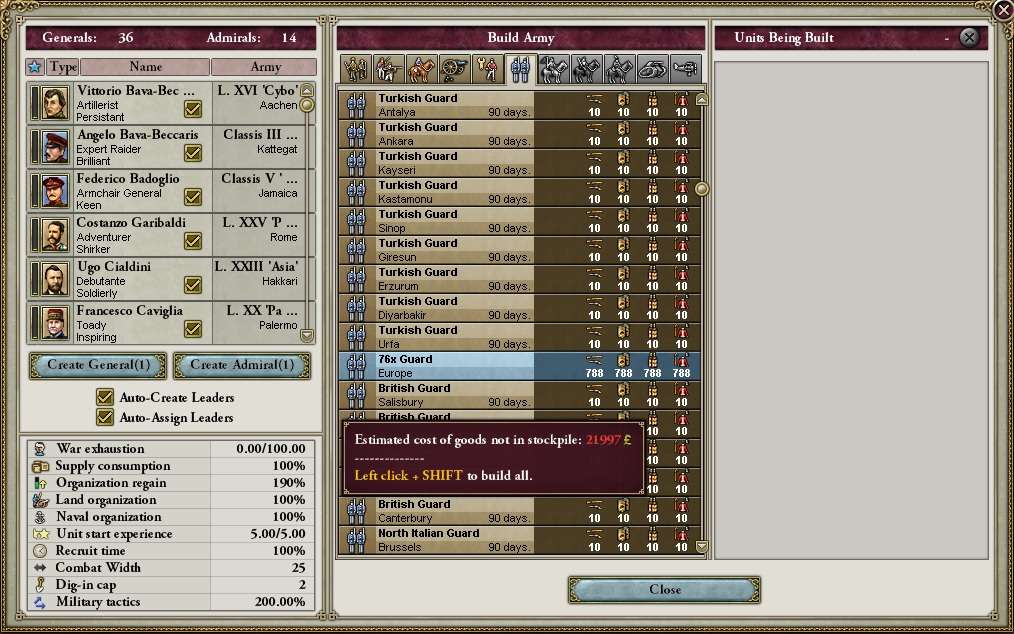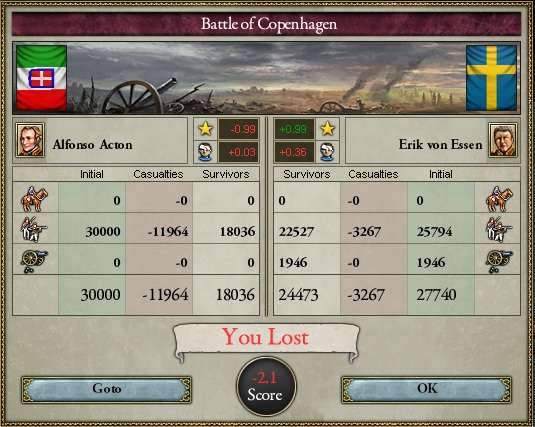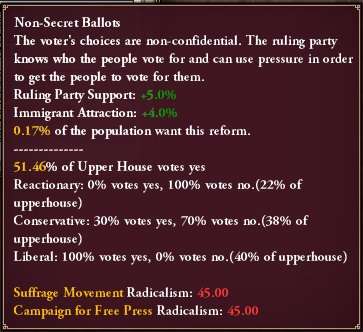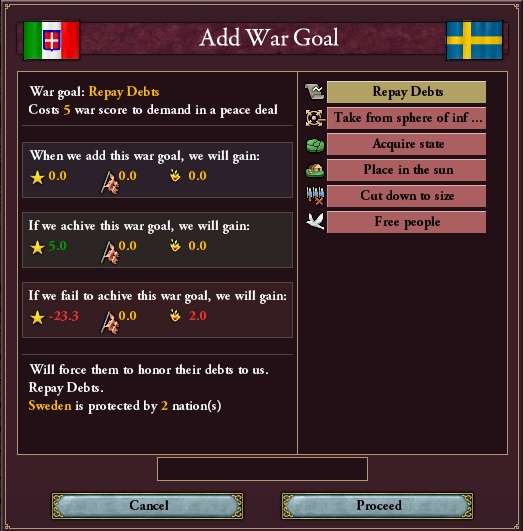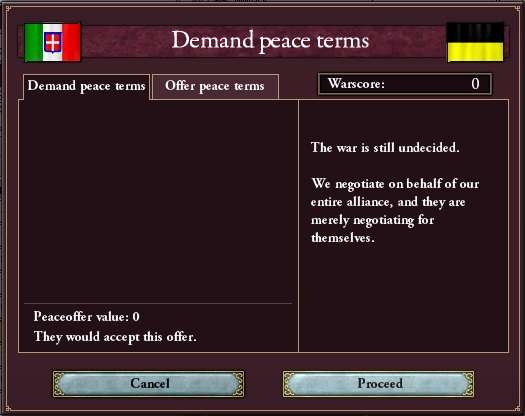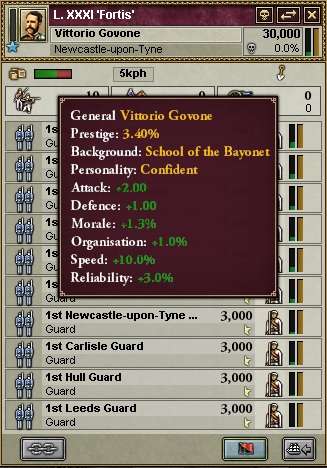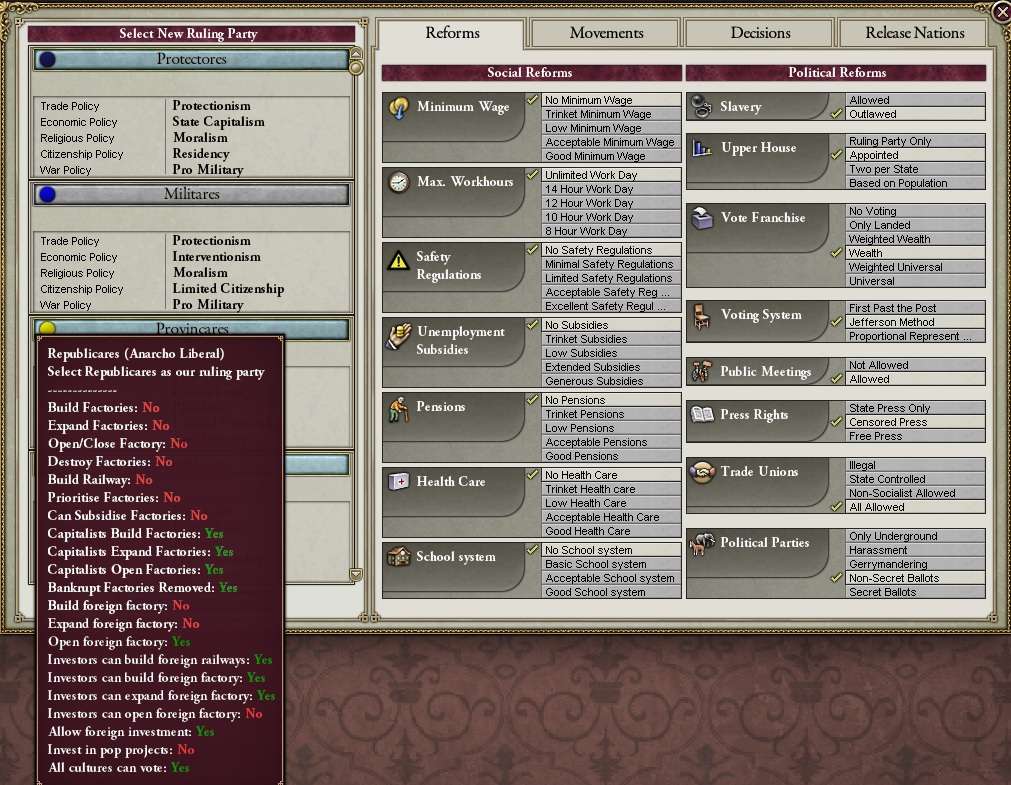Chapter 9: The Battle of Copenhagen, a new army, and a new Chancellor
21 June 1852, office of the Chief of the General Staff, Rome
Admiral Giovanni di Medici, Chief of the Roman General Staff, nodded with satisfaction as he signed the order deploying the Classis VI "De Ruyter" farther north. Key Swedish ports would now fall under the blockade, after Minister von Horgen's espionage had indicated no Swedish ships could slip through the blockade, as they were all tied up in port. With the Swedish provinces of Uppsala and Sundsvall closed off, the Swedes would have no choice but to surrender, and with minimal Roman losses. Of course, it was still a war, and even civilians were not immune, as a wounded soldier introduced cholera to the
regio of Hasselt, near the Rhine River.
Casualties would be horrendous, but measures had been taken to quarantine the population; hopefully, it would not spread. On the other side of the globe, yet another gold mine was discovered in the Australian
regio of Sandy Desert.
If only I'd invested in the Colonial Company, thought the Admiral with a wry expression on his face. As a Senator, he'd attended many of the sessions discussing the integration of Australia into the Roman Empire; as yet, a powerful group of Senators were blocking extensive negotiations, but Giovanni felt reasonably confident that within the next few years, Australia and New Zealand would join the Roman Empire legally. It was simply too wealthy to remain independent forever. After flipping through a few more documents, the Admiral's attention was diverted by a knock on the door.
Sergeant Arturo Orsatti saluted. "Reporting as requested, sir."
Admiral di Medici returned to the salute and gestured young Orsatti to take a seat. "Your mission in Sweden was a success, Sergeant?"
"In all respects, Admiral. I am pleased to report no casualties for my squad, and Minister von Horgen told me that his own task was completed."
"Excellent, Sergeant. The Minister thought very highly of your leadership skills, which is part of the reason you are here."
Orsatti nodded. "Very well, sir."
The Admiral took out Orsatti's file and began to skim it as he talked. "Arturo, you've advanced very quickly for a man of your age. 20 year old Sergeants are extremely rare, as you are no doubt aware. However, you're also unusually experienced for your age, thanks to your early enlistment. This puts us in a bit of a bind, Sergeant, for your next assignment. I recognize your desire to return to the field, and the truth is, sergeants of your talent are scarce. I have here an order returning to you to Odense to begin preparations for the assault on Copenhagen. You'd be in charge of a squad of Imperial Marines, preparing the way for an amphibious assault. The Lieutenant for this assault is inexperienced, and I'd prefer to leave the squad in your hands until a beachhead is secured. However, there is a more... creative alternative."
Arturo's curiosity was piqued. "What is that, sir?"
Giovanni placed a prototype rifle on the desk in front of him. "Do you recognize this rifle, soldier?"
Orsatti carefully examined it. "It looks a little like the Wallonian one I recovered, but I don't recognize the breech. It's odd, sir."
"This rifle, Sergeant, is one of the new breech-loading rifles."
Arturo's eyes widened. "Breech-loading, sir? That would be a huge leap forward, particularly with some of the cartridge designs I've seen."
"Indeed it would. Early testing suggests the ability to fire nearly 12 rounds a minute."
"12 rounds a minute, sir? That would be incredible. Why aren't there more of these?"
The Admiral grunted. "There are those in the army who think that issuing large numbers of rapid firing rifles, without extensive training, would just result in the rapid consumption of ammunition with no increase in firepower."
"With all due respect, sir, that's total nonsense."
Giovanni snorted. "My words exactly, Sergeant, if a bit cleaner. Marshal Contadino agrees, but a number of prominent Generals have already stated they refuse to distribute these rifles until they're proven, for reasons of combat effectiveness."
"What does this have to do with me, sir?"
"Have you ever thought of becoming an officer?"
Arturo leaned forward slightly, his face a mask of surprise. "Me, sir?"
"Yes, you. To be blunt, if good sergeants are rare, lieutenants with field experience and a willingness to innovate are practically non-existent. That is why I would prefer, with your acceptance, of course, to assign you to the 8th Rome Infantry brigade. You'll be in Temesvar, a number of miles behind our front with the Poles. As the Lieutenant of a hand-picked squad, you'd be responsible for testing these prototypes and developing tactics. If you are successful, your tactics will become part of our training for the new Guards divisions that are being planned. You would be instrumental in training them, and would receive another promotion to Centurion by the end of 1853."
Orsatti thought carefully. "Wouldn't this keep me out of direct combat, sir?"
"Yes, it would. Take a look at this map of the Polish frontier."
The Admiral, after giving Arturo a moment to look at the map, continued. "As you can see, we have a few small skirmishing divisions directly on the border. If Polish troops engage, they have orders to delay an advance long enough for the Thirtieth to counterattack. The terrain along the border is too rough to station such a large formation directly on the border."
"Understood, sir."
"So, the choice is yours. I'll send you to Odense on the next train, if that's what you want. You'll continue as a Sergeant, and if you serve with distinction -- as I'm sure you will -- you'll be first in line for a spot at the Germanicus Academy's Lieutenant's course after the war. Or, I'll promote you now on my own authority, and you can be a critical part of outfitting and training the most elite units in the world."
"What if there were peace with Poland?"
"We would still need to patrol the border, Sergeant, so your legion would remain there."
Arturo shook his head. "That's not what I meant, Admiral. If we are going to be truly effective with the new rifles, we have to test them in a combat situation. If there is peace with Poland and not Sweden, wouldn't that eliminate that opportunity?"
"I suppose it would. What's your solution?"
"Let me train in Temesvar, but if peace breaks out, let me take my rifles and my squad and participate in the invasion of Copenhagen. You'll have the best of both options, sir."
The Admiral grinned. "That's thinking like an officer. I like it. Report to the train station at 0800 hours tomorrow, and get yourself a new uniform, Lieutenant. Good luck and Godspeed."
"Thank you, sir."
---------------------------------------------------------------------------------------
13 August 1852, beaches of Copenhagen
When peace with Poland came in July of 1852, it had taken many observers by surprise, except Lieutenant Orsatti.
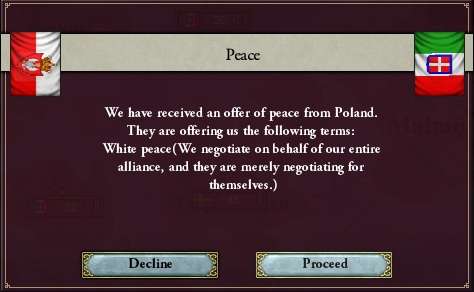
Arturo's uncle was a clerk in the Roman Embassy in Krakow; he'd known that peace with Rome was the primary goal for Poland after repeated assaults by Russian forces. The Lieutenant felt a little guilty for manipulating Admiral di Medici, but was still pleased he'd get to join in the assault, and true to his word, when the invasion was ordered on 3 August 1852, Orsatti's squad was part of the spearhead. Arturo had secured more of the breech-loading rifles -- nicknamed "Porcupines", to symbolize their rapid firing of projectiles -- and was able to get an entire century equipped and trained with them. Orsatti had learned that the most effective way to use the rifle was to disperse the men to make them harder to hit, while focusing on marksmanship to make sure each round counted. No massive lines of volley fire. His tactics worked perfectly against several Swedish skirmishers, but without more Porcupines, it would have to stay a small unit tactic.
10 days into the Battle of Copenhagen, an unsettling picture emerged.
Arturo, as a Lieutenant, only picked up the faintest rumors of what was going on in areas other than his own, but one of the things he'd insisted upon was leaving artillery in Odense until a sufficient beachhead was secured. Unfortunately, he could see many cannons being hauled across the strait by other commanders, and his fears were confirmed. There just wasn't enough infantry to protect the artillery, and artillery units couldn't hold up to direct attacks. The result was a massacre for Roman troops. A combination of strong fortifications and the natural difficulties of any amphibious assault, and the skill of Swedish General Erik von Essen, were slowly driving individual squads back across the straits. Centurion Antonetti approached Arturo as he contemplated his next attack.
"Lieutenant, get your men and get out of here."
Arturo was confused. "Are you sure, Centurion? I can easily rout this Swedish squad if I --"
"Now, Orsatti. You're too valuable to lose, and you will be lost if we keep you in this fight. We cannot risk letting these rifles fall into enemy hands either. The entire century is retreating under the direct orders of Colonel Govone."
Arturo was angry, but saluted and followed his orders anyway.
If this battle is so damned hopeless, why are we even here?
-----------------------------------------------------------------------------------------
10 November 1852, Newcastle-upon-Tyne, Britannia
As more and more infantry retreated, got wounded, or died, the artillery was increasingly abandoned, and the end result of two months of fighting was a decisive defeat for the Roman Empire.
When Arturo heard the final casualty count, he was absolutely horrified.
That Centurion was right. My men would have been annihilated if we hadn't retreated.
Instead of returning to Rome, Orsatti had been sent to tour the factories in southern England being used to develop the new Porcupines. The Minister of Science and Industry had already authorized the research for a more extensive modernization of all factories in the Empire to produce these new weapons with a system of Interchangeable Parts. The hope was to, in the long term, construct factories that would spit out these parts consistently, enabling other factories to focus more on detail work and quality control.
The first shipment of rifles had already been ordered, and 76 brigades of the new "Guards Infantry" were commissioned to serve as the initial deployment.
Although Arturo was excited to see his tactics and his rifles used throughout the legions, he was less happy with his immediate situation. The British General of the XXI Legio "Britannia", Lord Acton, had been a professor of engineering before joining the army. His grasp of the fundamentals was virtually non-existent, as evidenced by his insistence upon attacking Copenhagen again as quickly as possible. Arturo was attached to the British lord's staff, and Alfonso, Lord Acton, showed no signs of intending to accompany his troops, the sign of a bad leader according to Lieutenant Orsatti.
The results of the Second Battle of Copenhagen were very predictable, and as the Staff Lieutenant, Arturo was forced to write nearly 12,000 letters to families throughout the Empire. He was tempted to write "It's that idiot Acton's fault your child is dead," but the momentary satisfaction was always outweighed by the terrible consequences that would have.
Arturo sighed.
What will it take to end this war, or at the very least, get somebody with half a brain in charge?
-----------------------------------------------------------------------------------
23 February 1853, Sydney, Australia
Damn this senseless war, thought Samuel Morse, although for a very different reason than Arturo Orsatti. With the other four Directors of the Syndicate involved in the war somehow -- Vickers as Minister of Science and Industry, Decimus as Deputy Chancellor, Eugene Schneider and Willem van Dijk operating their businesses in Gaul and the Netherlands respectively -- that left Morse alone at Syndicate Headquarters. When the Christmas Catastrophe of 1852 -- Sweden's official announcement of bankruptcy -- occurred, Morse had to deal with the fallout.
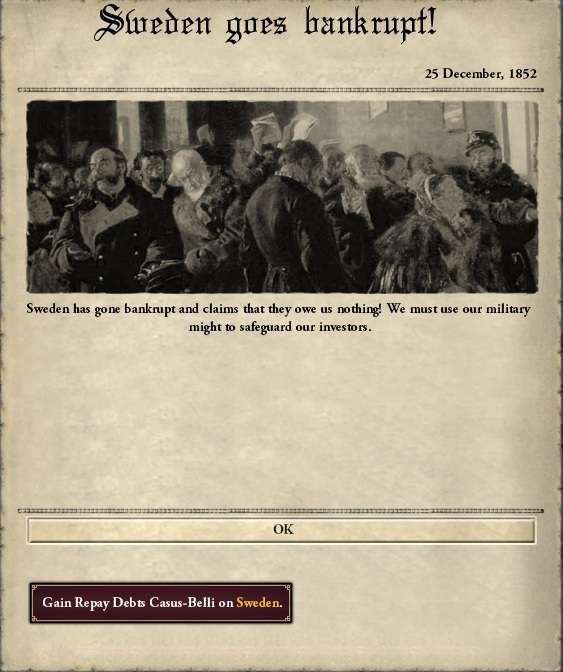
As long as the war continued, Syndicate members stood to profit. Schneider's ammunition factories, Vickers' explosive factories and Southampton Shipping, even the smaller Van Dijk Shipping Consortium, all showed tremendous growth. Since the Netherlands was formally neutral in the conflict, Van Dijk, in particular, sold to both sides and did so legally. Schneider, less legally, had done the same. Only Vickers had refused to sell to Sweden of the three business owners. Morse's share in Southampton shipping wasn't enough to overturn Vickers' strict opposition, and buying enough stock to do so was impossible. Of course, now that Sweden declared bankruptcy, the point was moot, and while privately Morse was glad he wasn't ruined, Schneider and Van Dijk were, unless something were done. To make matters worse, Swedish diplomats, alarmed at the losses taken by Sweden during the Battles of Copenhagen, had quietly begun sounding out Rome on the possibility of peace.
How do I fix this? Morse thought. He'd recently overseen the completion of an underwater telegraph line that ran from Sydney to Diego Garcia to Cairo, which then ran to Rome under a second line, which gave him some ability to influence affairs in Rome from Sydney. The January elections had returned a
Provincares majority to the Senate, and the only way that Decimus was able to maintain the
Pecuniares share of the political pie was to agree to Non-Secret Ballots in Rome, which would still give some measure of political control for the elites.
The Suffragists and the "Committee for a Free Press", led by Karl Marx, wouldn't be too happy, with their pet causes being ignored, but apart from those groups, overall militancy would decline enough to buy Decimus some time. Even though Gaius Tullius Cicero was Chancellor, Decimus was still the
de facto leader of the Curia as Deputy Chancellor, which gave him a tremendous amount of influence. It was ironic; the very institution Decimus had always argued against was keeping him in power. Morse snapped his fingers.
That was the solution! Decimus! He hurriedly wrote a telegram for Decimus. If the Curia passed a resolution demanding the honoring of all Roman debts as a condition for peace, the Syndicate was safe. Either the war continued, and the new artillery being ordered by the army would result in new profits, or Van Dijk and Schneider got bailed out. Although only the Emperor could add the war goal, Constantine XII was unusually susceptible to public pressure thanks to his education.
It was even more necessary with the recent peace with Austria; that meant that Sweden stood alone, and victory was almost guaranteed for Russia and Rome.
Morse began to compile a list of assets that the Syndicate would demand compensation for from Sweden. He was careful to separate each individual factory's assets into separate requests.
It wouldn't do to have the Syndicate discovered now, chuckled Morse, as he worked his financial magic to hide the owners of the corporations.
-----------------------------------------------------------------------------------------------
27 May 1853, office of the Minister of Finance, Rome
Karl Marx basked in his triumph. His "Committee for a Free Press" hadn't won -- yet -- but the Suffragists had, and in compensation for their support for the extension of war with Sweden, they'd demanded an expansion of the franchise for all middle class Romans.
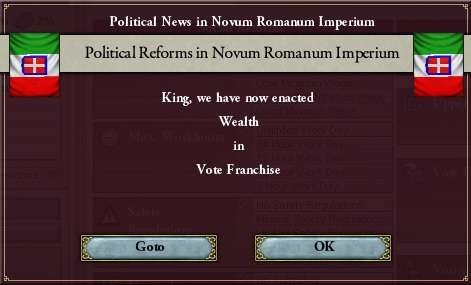
As the votes of middle class Romans and rich Romans equalized, their first act was to remove the restriction on Cabinet members; a Senator's position was no longer required to join the Cabinet. The Emperor had signed, out of his own conscience, the "Charter of the Roman Empire", which formally gave the right to amend the Constitution to the Senate and strengthened the Curia's hold on day-to-day administration. In effect, the Emperor's powers to decree legislation were voluntarily surrendered, although his word remained law in all matters of military and foreign policy. He still appointed (and fired) the Chancellor and the Marshal, but the rest of the Cabinet was responsible to the Senate. The Emperor had the right to appoint other Cabinet members, but firing them was now the sole province of the Senate. A powerful new committee in the Curia obtained the right to examine the record of any Senator and to recommend impeachment to the rest of the Curia if necessary. The most important change, even if it were symbolic, was the new form of address for the Emperor. He was no longer referred to as "His Imperial Majesty, Constantine XII," but "His Majesty, Constantine XII, Emperor of Rome." This suggested that the power granted to the Emperor was not inherent in his title; a subtle, but crucial difference.
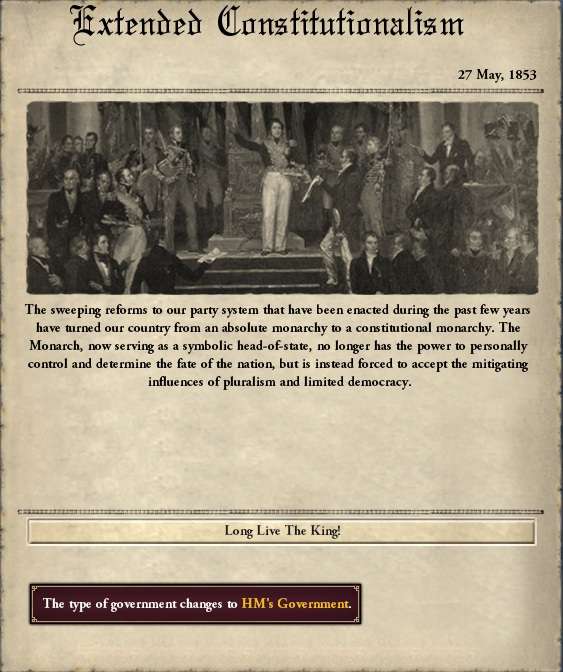
The
Republicares could not legally become Senators until the election of 1854, but the Senate had voted for the creation of a new Cabinet Ministry: the Ministry of Finance. With nearly 700,000 pounds spent on the war with Sweden -- and more was scheduled to go to the implementation of new, lighter, iron artillery -- a lot of fiscally sound Romans had demanded stricter adherence to the budget.
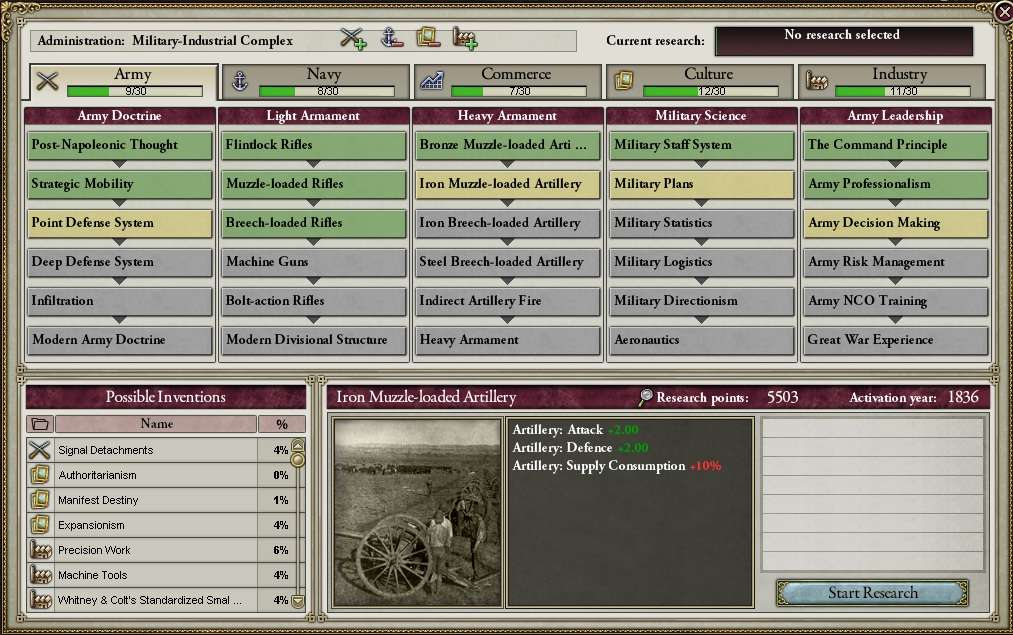
It just so happened that the Empire's most prominent economist was none other than Karl Marx. He was nominated by Edward Vickers, of all people. Vickers and Marx had, not a friendship, but an amicable opposition towards one another. Although Marx was no "hawk" in supporting military industry, most of his party was, and so he found himself working closely with Vickers, who was still Minister of Science and Industry. That meant he got a rare glimpse into military bureaucracy. The Minister of Finance was responsible for preparing the overall budget, but not how it was spent; the Emperor remained the sole arbiter of funds earmarked for the military once granted. Regardless, in order to accurately account for expenditures, Marx had a justifiable need to know of any major new deployments, and he was delighted to see that the first Guards Legion -- the Legio XXXI 'Fortis' -- was stationed in Britannia.
General Vittorio Govone, the commander of the Legion, was a member of the
Republicares. Govone was hereditary nobility as the second son of a former General, which made him a powerful spokesman for Marx's faction. Since Marx firmly believed in technical progress, another valuable asset was Lieutenant Arturo Orsatti, who was a rising star in the army. Marx had personally met Orsatti and admired Arturo's honesty and belief in progress. Perhaps the most surprising ally of all was the Minister of Information, Magnus von Horgen. Magnus was the last man to openly embrace liberalism, but he detested Decimus and his alleged corruption so much that he was driven into the arms of Marx's faction. A lot of other army officers and bureaucrats, unhappy with the anti-militarism of the
Provincares and the
Pecuniares, had done likewise. The
Militares were tainted by association with Decimus, and their insistence on intervention in the economy had alienated almost all of their former commercial constituents. Marx knew he wouldn't be launched into power overnight, but he did expect that his party's share would grow.
---------------------------------------------------------------------
30 May 1853, Imperial Palace, Rome
Constantine XII was outraged. No scandal had ever rocked the Empire quite like this one, but it demanded swift and immediate action. Like so many scandals, it had very modest beginnings: in this case, a clerk in the Ministry of Finance. This clerk, after an anonymous telegram, had examined the records of assets lost from Sweden's bankruptcy and found an odd consistency; the companies with the most losses tended to be factories that supplied the war effort. That bothered the clerk so much that he went all the way up to Minister Marx. That was the 28th of May. In less than four hours, Marx and Minister of Information von Horgen uncovered outright fraud, as many of the company records from the asset request had been doctored to hide the true ownership of each company. Going through the charters for each company, the same five names kept popping up. Edward Vickers. Eugene Schneider. Samuel Morse. Willem van Dijk. And the infamous Mr. Nemo Posside. Four of those men weren't in Rome, but one of them was, and so Marx and von Horgen had confronted Vickers.
That was how the story of the Syndicate finally broke. A shadowy cabal of five men who simultaneously controlled the colonies of Australia and New Zealand and also profited extensively from the war. Vickers, alone among the Syndicate's directors, had taken an actual loss by selling goods so cheaply to the Empire out of patriotism. None of his companies had traded with Sweden since the war began, either, unlike the companies of Schneider, Morse, and van Dijk. Since van Dijk was a Dutch national, the Empire couldn't touch him. Schneider and Morse had violated the law, and found themselves stripped of their companies -- sold at auction by the Imperial government -- and given lengthy prison sentences. Vickers was fined 200,000 pounds, a considerable sum, but no criminal charges were brought against him. Nothing the Syndicate had done prior to the war was actually illegal; unethical, yes, but not illegal. Vickers voluntarily resigned his position in every company he owned; he only kept Southampton Shipping and Vickers Munitions, but gave one to each of his sons, Albert and Thomas. Thomas had actually served in the Imperial legions, attaining the rank of Colonel before retiring. Edward stayed on as Minister of Science and Industry after a ringing endorsement by Karl Marx.
That left one final conspirator, and he received the most extreme punishment. As part of Vickers' confession, he revealed the name of "Nemo Posside:" Marcus Porcius Cato Decimus. Samuel Morse provided the telegrams demonstrating that Decimus had used his office to extend the war with Sweden, which made Decimus guilty of treason. Morse and Schneider, in exchange for their testimony, received sentences of "only" thirty years in prison. Given Morse's age, he would likely die in prison. Schneider would be in his sixties when he left. Decimus was executed by firing squad on 29 May, 1853 by imperial decree; nobody mourned his loss. Gaius Tullius Cicero, angry at himself for missing Decimus's manipulation, resigned as Chancellor.
Constantine XII had only two realistic options for Chancellor. The first, Agrippa Germanicus, was forced to decline the post of Chancellor, since his faction had become more militantly anti-military, despite Agrippa's own inclinations. And so, Karl Marx became Chancellor of the Roman Empire.
He hadn't achieved the highest officer in the Roman Empire overnight after all.
It took him three.
------------------------------------------------------------------------------------------
The next update will see the Marx government and the end to the war with Sweden.
Thanks for reading!


